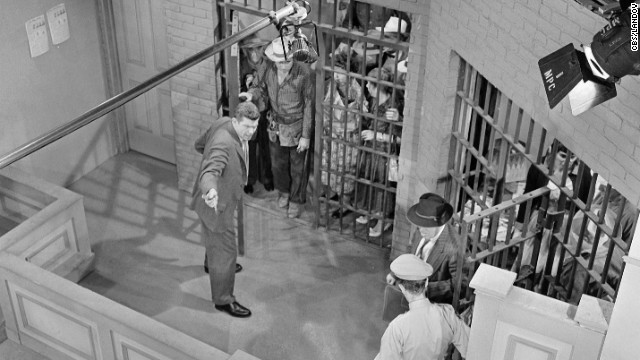
The sun-drenched streets of Mayberry, North Carolina, beckoned viewers into an idyllic haven for eight seasons, offering a soothing balm of homespun humor, gentle wisdom, and uncomplicated virtue. The Andy Griffith Show was more than just a television program; it was a weekly ritual, a comforting presence, a vision of an America where problems were solved with calm reason and a firm, loving hand. On screen, every interaction felt organic, every character a living, breathing part of the town’s wholesome fabric. Yet, behind this seamless illusion of simplicity lay a fascinating tapestry of creative genius, human dynamics, and unconventional production methods—the true "secrets" that transformed a sitcom into an enduring cultural touchstone. These weren't scandalous revelations, but rather profound insights into the alchemy that birthed Mayberry's magic.
Perhaps the most potent "secret" was the extraordinary, almost telepathic synergy between Andy Griffith and Don Knotts. Their on-screen relationship as Sheriff Andy Taylor and Deputy Barney Fife was a comedic masterclass, but it sprang from a deep, real-life friendship and an understanding of each other's talents that bordered on psychic. Griffith, the stoic straight man, understood Knotts’s frantic genius, often stepping back to allow Barney to fully unfurl his anxieties, his bravado, and his hilariously misguided efforts. It’s well-known that Knotts won five Emmys for the role, a testament to his unique comedic timing, but it was Andy’s generosity, his quiet genius for setting the stage, that allowed Barney to shine so brightly. Anecdotes abound of Griffith intentionally underplaying his lines or even withholding his own jokes to amplify Knotts’s performance. Their shared laughter, those moments when the characters would just lock eyes and dissolve into genuine mirth, weren't just acting; they were glimpses of an authentic bond that transcended the script, adding an ineffable layer of warmth and believability to every scene.
Beyond these symbiotic relationships, another significant "secret" lay in the show's unique approach to its early scripts, or rather, the lack thereof. In its nascent stages, particularly for the first five episodes, The Andy Griffith Show operated with little more than detailed outlines, trusting its core cast to improvise and bring their characters to life organically. This unconventional method was a double-edged sword, demanding immense talent and quick wit from the actors, but also fostering an unparalleled naturalism in the dialogue and interactions. It allowed the characters to truly become themselves, to find their rhythms and idiosyncratic speech patterns through live performance rather than rigidly adhering to a pre-written text. This creative freedom, championed by Griffith himself who preferred a more relaxed set, imbued Mayberry with an authenticity that often eludes heavily scripted productions. The townsfolk didn't just recite lines; they lived them, breathing genuine life into every courthouse conversation and porch-sitting pronouncement.
Yet, the magic wasn't solely in the individual performances or the collaborative writing style; it also stemmed from the deeply human realities of the actors themselves, sometimes mirroring their characters, sometimes delightfully contrasting them. Ron Howard, who played Opie, was not a typical child actor; he was remarkably grounded and natural, largely due to Griffith’s genuine mentorship and the supportive atmosphere on set. Griffith treated Howard not as a precocious talent, but as a young boy, fostering a real, paternal bond that echoed the one seen on screen. Conversely, Frances Bavier, who played the beloved Aunt Bee, was known off-screen to be quite different from her warm, grandmotherly character. A private and sometimes reclusive woman, her portrayal of Aunt Bee’s gentle benevolence was a testament to her acting prowess, proving that even the most idealized characters can be crafted by nuanced human beings. These subtle disparities between actor and character, alongside moments of shared vulnerability and camaraderie, added a hidden depth to the show, reminding us that even the most perfect fictional worlds are built by imperfect, wonderful people.
The "secrets from behind the scenes" of The Andy Griffith Show are not dramatic revelations of scandal or conflict, but rather quiet affirmations of the power of genuine collaboration, creative intuition, and a shared vision for wholesome entertainment. They illuminate why Mayberry felt so real, so comforting, so timeless. It was the fusion of Andy and Don’s comedic chemistry, the liberating practice of improvisation, and the authentic human connections formed on set that allowed the show to transcend its status as a mere sitcom. These hidden facets reveal that the enduring magic of Mayberry wasn’t an accident; it was a deliberate, heartfelt creation, a testament to the belief that the greatest stories are often the simplest ones, told with integrity, laughter, and a whole lot of heart.